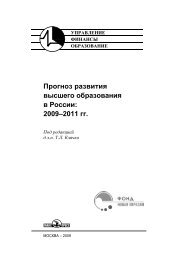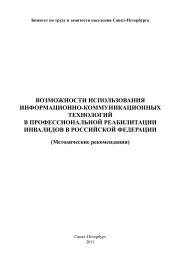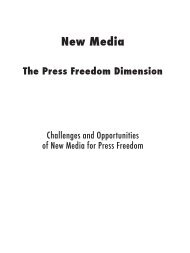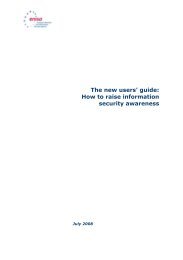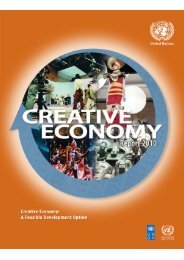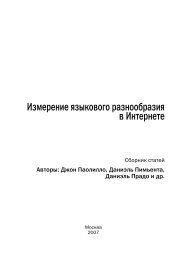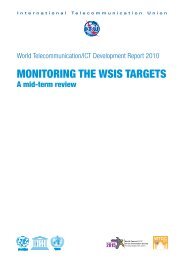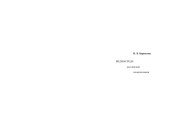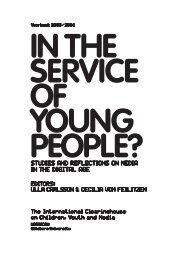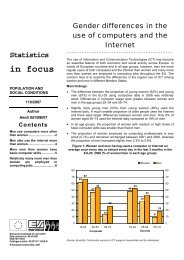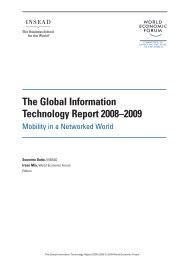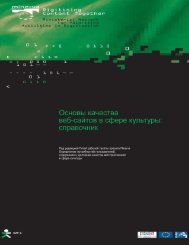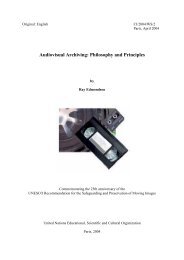Model curricula for journalism education for developing countries ...
Model curricula for journalism education for developing countries ...
Model curricula for journalism education for developing countries ...
You also want an ePaper? Increase the reach of your titles
YUMPU automatically turns print PDFs into web optimized ePapers that Google loves.
31<br />
Journalists understand the elements and structure of a story and what makes a<br />
story a good news story. Why is the story important Why does it matter Why does<br />
it matter now Who is affected by this story Who would be concerned about it<br />
How will people react to this story How will it help them to make decisions (In this<br />
competency, as in many others, consideration should be given to the implications of<br />
developments in communications technology.)<br />
• An ability to ask questions and understand answers in national and local<br />
languages.<br />
For journalists, competency in the national language and the language they use in<br />
their work is essential. In many <strong>countries</strong>, and <strong>for</strong> journalists hoping to work beyond<br />
their national borders, competency in English and other languages is recommended.<br />
• Observation skills<br />
Journalists have the ability to notice and remember things, and the ability to<br />
maintain observer status and resist the urge to become a player in stories they are<br />
covering.<br />
• The ability to quickly and efficiently gather, understand and select in<strong>for</strong>mation<br />
related to a story through interviewing, from published and Internet sources, and<br />
using investigative techniques.<br />
Journalists master a repertoire of research methods, including interviewing and<br />
investigative techniques and computer assisted reporting. They are able to identify<br />
and access print and online public records and other documents, read efficiently<br />
to identify news and story, and summarize, paraphrase and quote accurately. They<br />
are able to identify human sources, approach sources by telephone and email and<br />
in person. They are skilled in structuring interviews and asking questions and in<br />
listening and observing.<br />
• The ability to take accurate notes.<br />
Reporters are able to take verbatim notes of at least two or three sequential<br />
sentences of normal speech. In some cases, shorthand is required to practise<br />
<strong>journalism</strong> and is taught in <strong>journalism</strong> schools.<br />
• Techniques <strong>for</strong> checking and corroborating in<strong>for</strong>mation.<br />
Journalists question the accuracy of most everything from interviews or documents.<br />
Be<strong>for</strong>e publishing or broadcasting the in<strong>for</strong>mation, they check it with the initial<br />
source and, better still, corroborate it from other sources. A competent journalist<br />
develops effective techniques <strong>for</strong> ensuring accuracy.<br />
• Arithmetical skills and a basic knowledge of statistics and survey methods.



